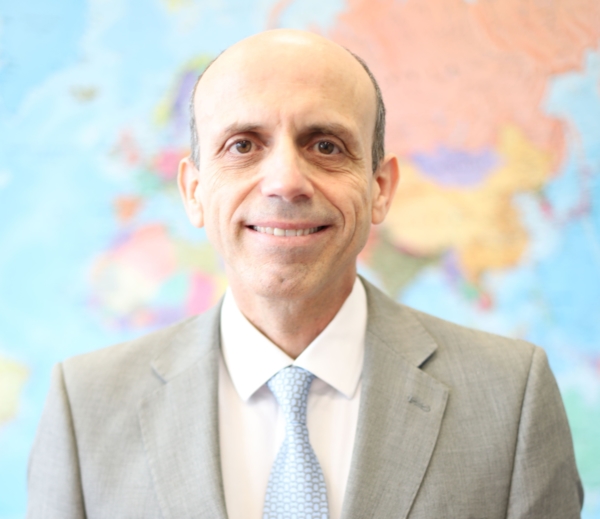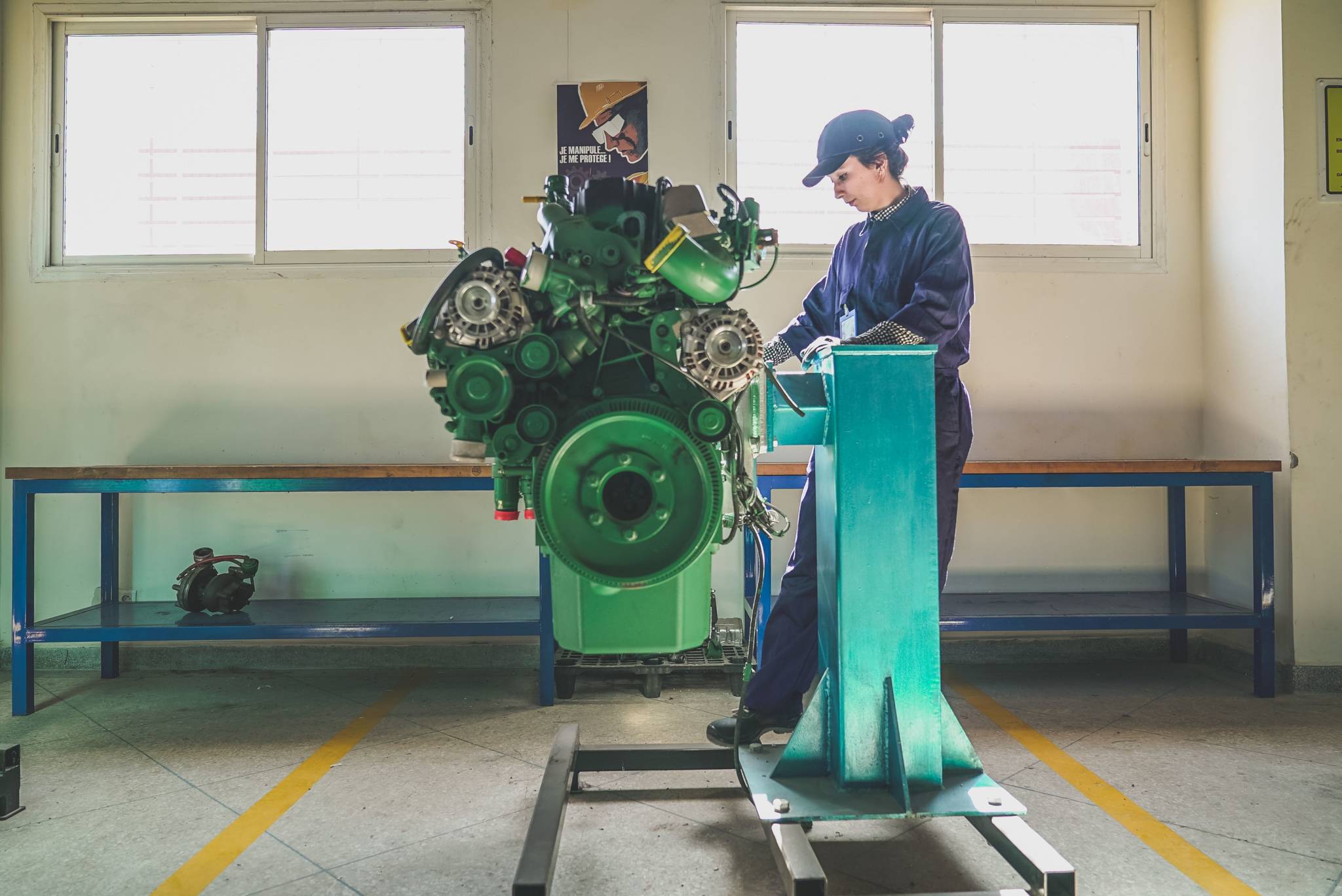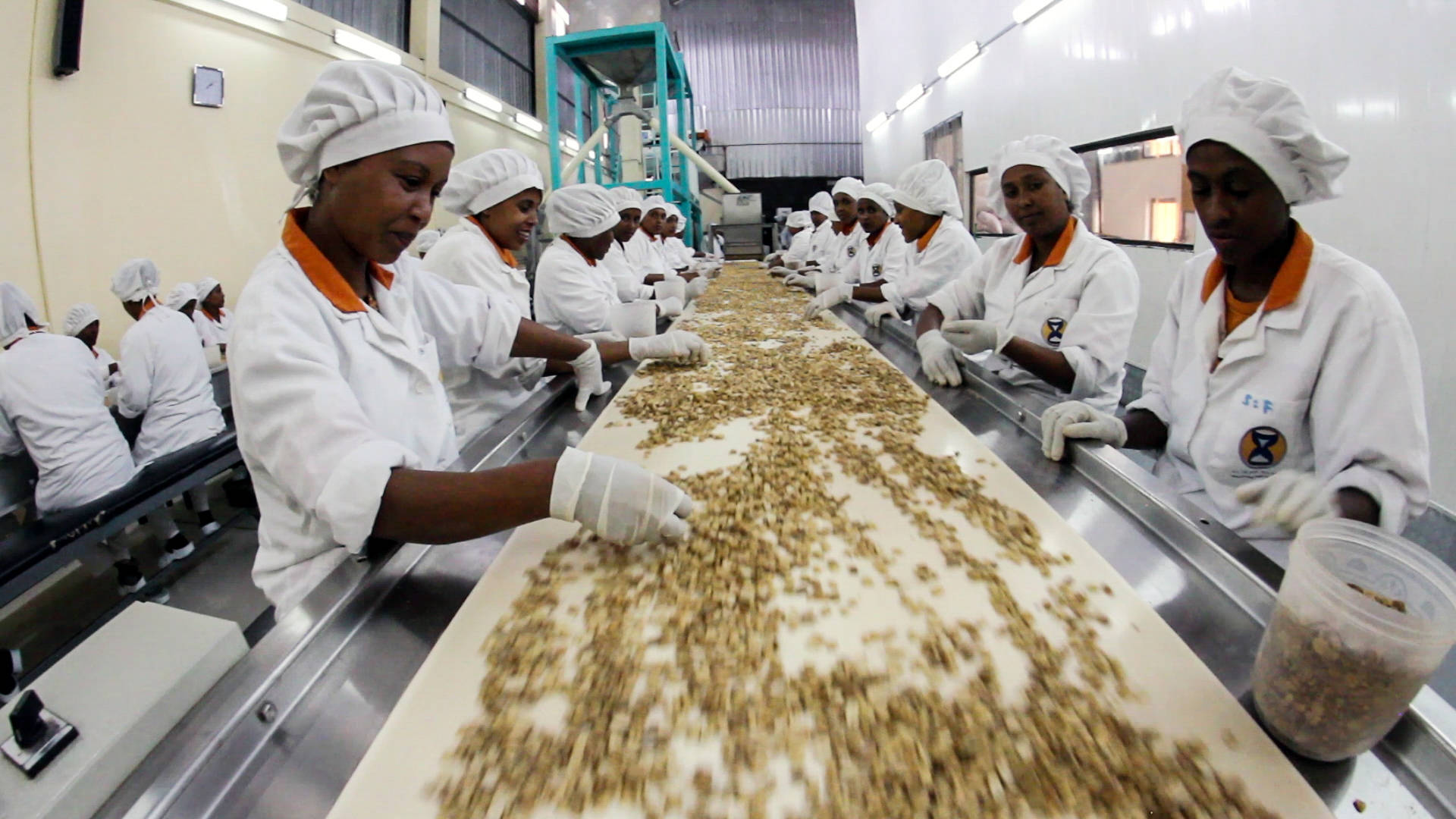We use Cookies. Read our Terms
- News
- Regionally speaking
Regionally speaking
The challenges and opportunities of cross-border integration

Dr. Jaime Moll de Alba is Director of the Department of Programme and Partnership Coordination at the United Nations Industrial Development Organization (UNIDO). Here, he shares his thoughts on a number of challenges and opportunities including how regional economic integration is increasingly becoming apparent across all sectors, the immense potential of the newly established Africa Continental Free Trade Area, and the anticipated ‘unprecedented decline’ in global manufacturing for the year 2020.
As published in the 2/2021 issue of the OPEC Fund Quarterly.
Regional integration and socio-economic development
By facilitating the flow of trade, capital, information, energy, people and ideas, regional integration can contribute to countries’ socio-economic development. UNIDO supports its member countries to advance inclusive and sustainable industrial development for poverty reduction and economic growth. As part of this mission, we also support initiatives for greater regional integration. Some of these focus on helping countries and regions participate in global trade by upgrading the capacities of enterprises, promoting linkages and investments, or facilitating technology transfer and skills development. Others focus on enhancing institutional capacities, regulatory frameworks and business environments.
We deliver our support through specialized technical cooperation projects, policy advice, normative and standard-setting work, and convening activities. In the West Africa region, for instance, UNIDO’s technical assistance is strengthening the regional quality infrastructure and competitiveness of industrial enterprises. The program supports the 15 countries of the Economic Community of West African States (ECOWAS) and Mauritania, increasing trade and competitiveness of key value chains within the region, contributing to job creation and poverty reduction.
Access to energy constitutes a pre-condition for countries and regions to industrialize, and is vital for economic growth and development. UNIDO supported the establishment of the Global Network of Regional Sustainable Energy Centres, in cooperation with the regional economic communities and organizations, and member states. The centers in Africa, the Caribbean, and the Pacific are instrumental in contributing to economies of scale, and building the necessary capacities to mitigate barriers to the use of renewable energy, and energy efficient investments and markets. As part of our support, we facilitate the institutional and governance arrangements of such platforms, backstop the technical functions, and promote inter-regional cooperation and peer learning among them.
Advanced economies, free trade areas and AfCFTA
Looking at the global development landscape, advanced economies in Europe, North America and East Asia tend to be the most regionally integrated areas. Research points out that they have certain common attributes such as higher levels of human capital, stronger technological capacities and infrastructure, and greater access to credit, investments, as well as to foreign firms and production networks.
From the trade perspective, regional economic integration usually takes form in common free trade areas or customs unions, offering members preferential trade access to each other’s markets. As proven by recent analyses, we see this through the Association of Southeast Asian Nations (ASEAN) and increased South-South trade, which are features of 21st century globalization.
Regional economic integration in sub-Saharan Africa and Central Asia is comparatively less, partially due to the limited availability of financial and human capital resources, constraints in production and distribution capacity, as well as difficulties in meeting stringent trade requirements. UNIDO is leading the implementation of a framework called the ‘Third Industrial Development Decade for Africa’ to propel the continent’s structural transformation, which is also helping national governments address barriers to the opportunities offered by the newly established African Continental Free Trade Area (AfCFTA). AfCFTA, as now the world’s largest free trade area, provides immense potential for increased industrialization, diversification and job creation in Africa.

Photo: USAID/Oudayas Settat
Borderless production systems
Some industries where activities can be more easily separated, such as electronics, automotive or garments, are more conducive to regional economic integration as proven by history. The fragmentation of industrial production processes, and the dispersion of tasks and activities within these sectors, has led to the emergence of borderless production systems, which can also be regional in scope and referred to as regional value chains.
At the same time, thanks to the rapid development of digital technologies, regional economic integration is increasingly becoming apparent across all sectors. If we look at developing countries and economies in transition, while it is the local firms – small- and medium-sized enterprises – which account for most economic activity and job creation, only a small proportion manage to join such value chains effectively. The opportunities to integrate into regional and global value chains vary also based on the country’s stage of development.
The fundamentality of human capital
Human capital is one of the fundamental factors driving industrial development. Investing in human capital helps local industrial firms improve their efficiency and productivity, which also increases their chances of linkages with foreign firms and production networks. Increasing the skills of workers is therefore critical for participating in and expanding regional production value chains. It also offers significant opportunities for developing countries to become part of the global economy, to absorb knowledge and technology, and add value to their industrial products.
UNIDO has, for instance, a long-standing partnership program with Hewlett Packard which addresses skills training needs for vulnerable youth in the Middle East and North Africa (MENA) region. The program teaches essential entrepreneurship and business skills and usage of information technology tools to young people in the MENA region, given the importance placed on youth employment in countries’ national development plans. It contributes to the development of micro- and small-sized enterprises, in turn stimulating economic and social development in the region. Another initiative promoting skills development, and at the same time South-South cooperation, is Morocco’s Training Academy for Heavy-duty Equipment and Commercial Vehicles, which delivers training for young people from Morocco, Côte d’Ivoire and Senegal. Established in partnership with the Volvo Group, the Academy delivers labor market-oriented training, matching the needs of the private sector.

Photo: UNIDO
Learning from lockdowns
With most economies under full or partial lockdown and with trade and investment contracting, the future of moving out production from industrialized economies to lower wage, labor abundant developing countries remains uncertain. Although manufacturing activity bounced back after the initial COVID-19 shock, UNIDO statistics anticipate an unprecedented decline of 8.7 percent in global manufacturing for the year 2020. Recent UNIDO survey results indicate that the majority of African policymakers expect industry revenues to drop by more than 25 percent in 2020, with some suggesting it could be over 50 percent. Similarly, in Asian emerging economies, half the firms surveyed by UNIDO expect a drastic decline in company profits by 50 percent or higher for 2020.
The UNIDO 'Industrial Development Report 2020' notes that, even before the outbreak of COVID-19, advanced digital production technologies were giving rise to opportunities to reorganize international production. This trend is now reinforced through the pandemic, which could lead to a further diversification of supply sources in order to avoid future risks of supply chain disruptions. The supply chain and travel disruptions might also undermine regional economic integration and encourage self-sufficient economic systems, at least in strategic sectors such as personal protective equipment.
No single country or entity can achieve all the development goals alone
The international community must be committed to working in partnerships to mobilize the knowledge, expertise, technology, and financial resources to achieve the 2030 Agenda for Sustainable Development and its 17 goals. The necessity of this global partnership is even more pronounced now, as no one can overcome the pandemic alone or address the myriad of consequences on its own.
Governments set the national development agenda and targets, while UN specialized agencies – such as UNIDO – bring in the technical know-how and expertise to support public and private stakeholders in building the capacities to achieve their (industrial) development goals, which can also take on a regional dimension. For this, UNIDO works in multi-stakeholder partnerships and in synergy with regional entities and their partners, including financial institutions that enable developing countries to invest in large-scale industrial infrastructure projects. As a neutral party, UNIDO and other UN entities also facilitate dialogue between governments, financial institutions, private entities, civil society and other development actors, for coordinated actions, including at the regional level.
UNIDO and the OPEC Fund, for instance, enjoy a long-standing relationship and have collaborated to promote stustainable development, for example, through a regional initiative to enhance the productivity and competitiveness of the fisheries sector in Latin America and the Caribbean.
In the environmental sphere, an initiative was launched recently bringing together governments, and relevant global networks and organizations, to promote transitions toward a circular economy, sustainable consumption and production patterns, and inclusive and sustainable industrialization. Set up by the European Union (EU), the UN Environment Programme and UNIDO, the ‘Global Alliance on Circular Economy and Resource Efficiency’ is joined to date by the EU and 11 countries across the globe, and builds on existing initiatives and cooperation with regional alliances (such as the African Circular Economy Alliance, and the Regional Coalition on Circular Economy of Latin America and the Caribbean).
Related Stories
Interview with Sara Mbago-Bhunu, East and Southern Africa Regional Director of the International Fund for Agricultural Development (IFAD)
It's about more than just trade
Interview with Cecile Fruman, World Bank Director of Regional Integration and Engagement, South Asia
A high-impact strategy
Interview with Sérgio Pimenta, the International Finance Corporation's (IFC) Vice President for the Middle East & Africa
Challenges and opportunities transcend boundaries
Interview with Konstantin Limitovskiy, Asian Infrastructure Investment Bank (AIIB) Vice President of Investment Operations (Region 2)